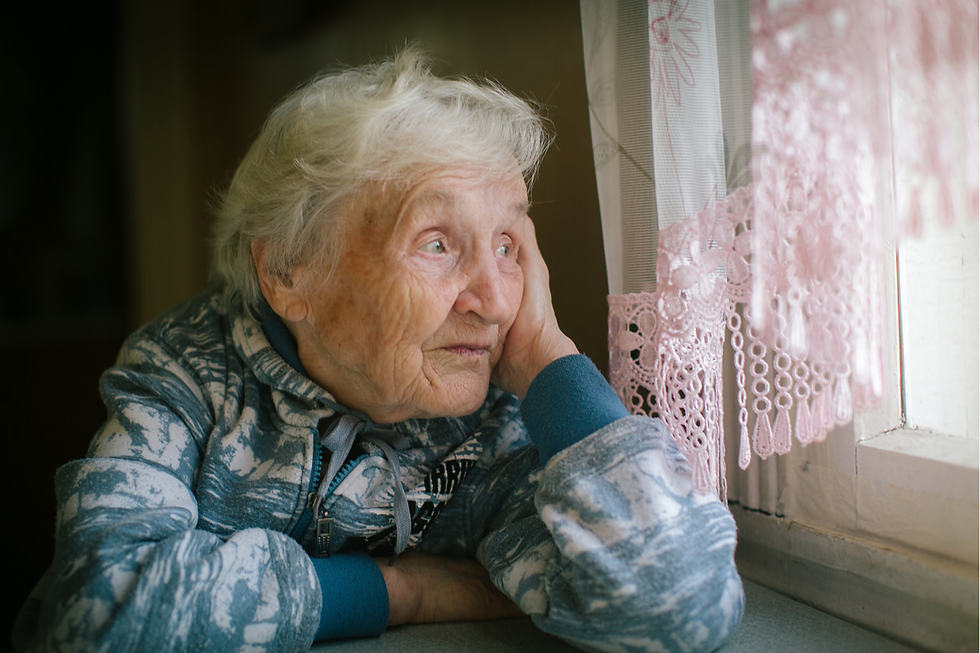Navigating Guilt as a Caregiver
- Mar 9, 2023
- 3 min read
Caregiver guilt is an emotion experienced by family caregivers when they feel like they are not doing enough to provide care for their loved ones. Unfortunately, research suggests that caregiver guilt is incredibly common among California's family caregivers - over 50% reported feeling guilty about their caregiving responsibilities. (Source)
Caregivers face unique challenges, often dealing with feelings of guilt related to their relationship with the care recipient. It's common for caregivers to feel responsible for the well-being of those they most intimately care for, or to feel like they're not doing enough or neglecting duties outside of the caregiving role. It’s essential to be mindful and watchful of these signs in order to protect yourself from feeling overburdened or overwhelmed by guilt. With the right strategies, you can confront and address any emotion of caregiver guilt that arises in your path as a carer.
Coping with Caregiver Guilt
Family caregivers grapple with a unique set of emotions that can be overwhelming, such as guilt, fear, and grief. Often all at once. It is important to recognize and accept these feelings without judgment and take steps toward addressing them. But here’s the truth: there is no need to feel ashamed or embarrassed about your situation.
Here are some ways to cope with caregiver guilt:
1. Acknowledge and accept your feelings. It's important for you to address any feelings of guilt that arise, as unresolved or persistent guilt can lead to emotional and physical exhaustion from providing long-term care, otherwise known as 'burnout'.
2. Seek support from other caregivers or professionals. Seeking support from other caregivers or professionals is key to managing the stress of caregiving. They can help you see that you’re not alone in your feelings and help to give you peace of mind.
3. Practice self-care and set boundaries. As a caregiver, you need to practice basic self-care on a regular basis in order to look after your own well-being and achieve the best outcomes for both yourself and the person you are caring for. A big part of self-care also includes setting boundaries where needed (it’s OK to tell people “no!”) to help manage this stress.
4. Find ways to cope with the loss of control and uncertainty. Additionally, finding healthy ways to cope with the loss of control, such as creative activities or mindfulness practices, can help you process any feelings of uncertainty.
5. Use available resources. Lastly, remember that assistance is available and there are plenty of resources out there that can provide guidance and support during this journey. One way to do this is by connecting with other caregivers or professionals to build support systems and get validation for our experiences (check out the next sections for more details on how to find these resources).
6. Be Realistic & Reframe Thoughts
You are only one person. No matter what, you cannot do it all on your own. Be realistic about what you can do, and what you can and cannot control. Sometimes, we set unrealistic expectations for what we “should” be doing that are simply not achievable. When this happens, we might feel guilt that we did not live up to these expectations. Try to reframe your guilt to regret. You may regret how something turned out and that is okay. Unless you have done something to harm another, you may be experiencing inappropriate or unwarranted guilt.
By understanding ourselves, being mindful of our needs, and forming connections, we can begin the path of relieving caregiver guilt.
Resources for Family Caregivers in California
Family caregivers in California have an array of invaluable resources to turn to when they need support. From local support groups and organizations designed specifically for them (like CRC OC), to respite care – a temporary relief plan – family caregivers in California can find the necessary help to prevent themselves from feeling overwhelmed and exhausted.
Closing Thoughts
As we conclude this exploration of caregiver guilt and its impact on family caregivers in California, we urge all caregivers to take the time to prioritize their own mental health. It is essential to seek help and support from others, whether it be through local programs or other forms of support groups. No one should have to grapple with difficult feelings alone.
If you’re providing care to a loved one, we invite you to check out our free resources. To get more information about the resources we have available to you as an Orange County, California caregiver, contact us at the California Caregiver Resource Center of Orange County.
Join our Facebook Group
If you’re looking for a community of caregivers that truly understands what you’re going through. A group you can turn to when you have questions, frustrations, or need advice? Join our California Family Caregivers Facebook group today.
Our California Family Caregivers Facebook group is a safe space for caregivers across different communities in California to speak about their caregiving journey and interact with one another. Join us today.




